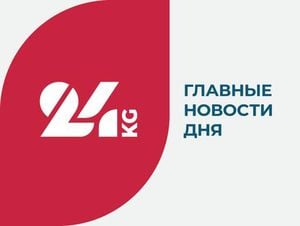Starting April 14, 2025, Kyrgyzstan will begin a phased abandonment of paper certificates, marking a significant shift towards digital governance. This initiative, announced by Minister of Justice Ayaz Baetov during a cabinet meeting, will initially affect citizens under 50 years old. They will be required to obtain all necessary certificates and information exclusively through the digital system known as 'Tunduk'.
The move aims to streamline bureaucratic processes, reduce paperwork, and eliminate redundant requests between government agencies. Baetov emphasized that it will be prohibited to request certificates that are already available in other departments, a change made possible through the mutual connection of databases.
"This is a necessary step in the transition to digital interaction with government bodies," Baetov stated. He noted that citizens under 50 who are capable of using the 'Tunduk' application will no longer receive paper certificates.
In a similar vein, Ukraine is also moving towards digitalization in its own bureaucratic processes. A new draft law, No. 13131, has been registered in the Verkhovna Rada, proposing the abolition of medical certificates for drivers. Instead, drivers would receive an electronic medical report based on their health information from the eHealth database (ESOZ).
This draft law is part of a broader effort to modernize and simplify the process of obtaining driver's licenses. The electronic medical report would replace the traditional paper certificates (form 083/o) currently required for a driver's license.
According to the draft law No. 12066, the ESOZ will automatically exchange data with the register of individuals liable for military service known as 'Oberig'. This integration aims to enhance the accuracy and efficiency of health assessments for drivers.
Under the new system, drivers will be categorized into two groups based on their license types. The first group will include individuals with licenses for motorcycles and cars (categories A, A1, A2, AM, B, B1, and BE), while the second group will consist of those with licenses for trucks and buses (categories C, CE, C1, C1E, D, DE, D1, and D1E).
Following their medical examinations, drivers or candidates will receive an electronic medical report indicating whether they are fit to drive. The report will specify any conditions necessary for their admission to driving.
Both Kyrgyzstan and Ukraine's moves towards digitalization reflect a growing trend in many countries to reduce reliance on paper documents and streamline governmental processes. As technology continues to evolve, these nations are embracing digital solutions to improve efficiency and accessibility for their citizens.
In Kyrgyzstan, the initiative is expected to significantly cut down on the time and resources spent on paperwork, allowing government agencies to focus on more critical tasks. Similarly, Ukraine's electronic medical reports aim to provide a more comprehensive view of a driver's health, potentially increasing road safety by ensuring that only qualified individuals are behind the wheel.
As these changes take effect, citizens in both countries will need to adapt to new systems. The success of these initiatives will largely depend on the public's willingness to embrace technology and the government's ability to provide support during the transition.
In conclusion, the digital transformation of bureaucratic processes in Kyrgyzstan and Ukraine signals a significant step towards modernization. By eliminating outdated practices and moving towards electronic systems, both nations are setting a precedent for efficiency and improved governance.







